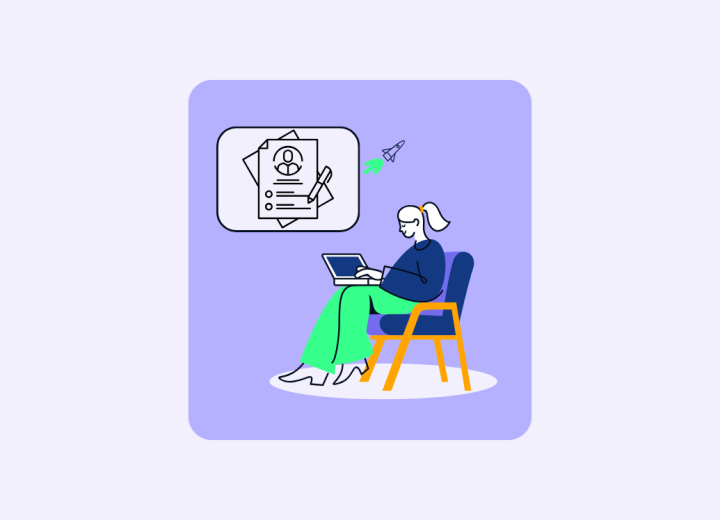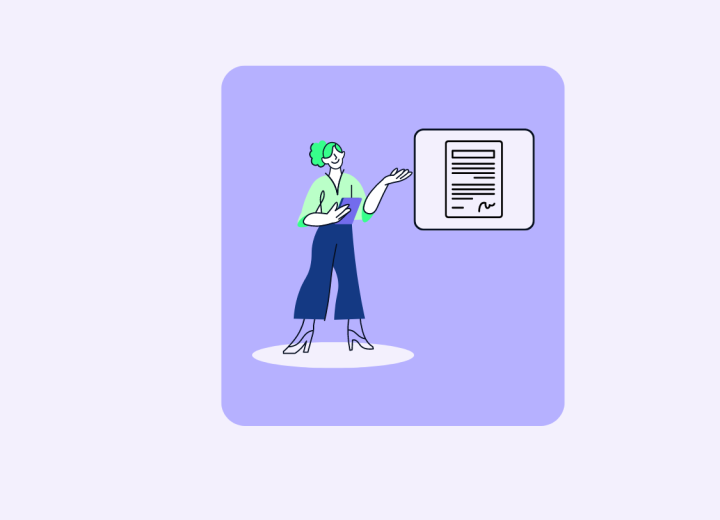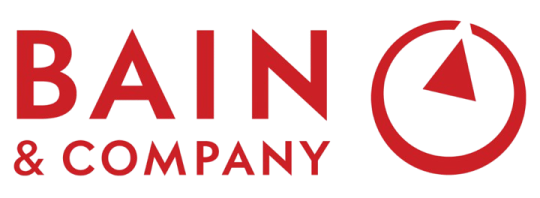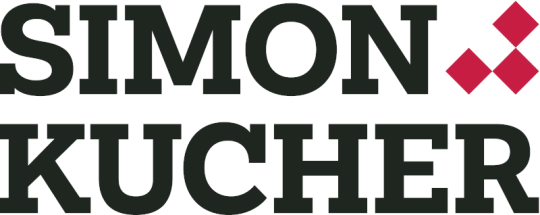A case interview is a type of job interview in which the candidate must analyze and solve a problematic business scenario (“case study”). It is used to simulate the situation on-the-job and to find out if the respective candidate meets the necessary analytical and communication skills required for the profession. Case interviews are commonly and globally used during the selection processes at management consulting firms such as McKinsey, the Boston Consulting Group (BCG), or Bain & Company. It is the most relevant part of the process for consulting jobs, and they are usually based on projects that the hiring firm has delivered for a client. It is an exercise that requires a logical approach to finding the problem and an appropriate solution.
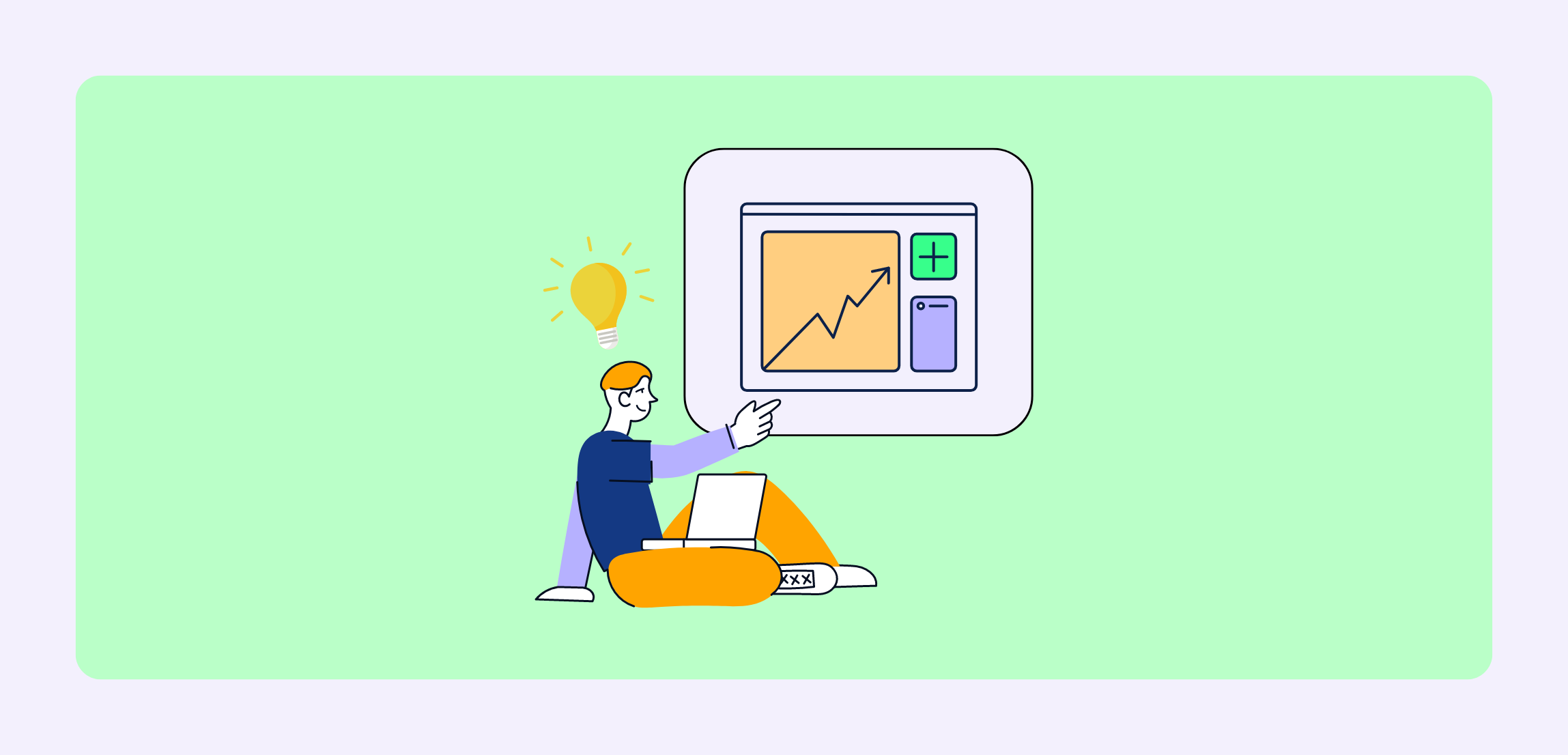
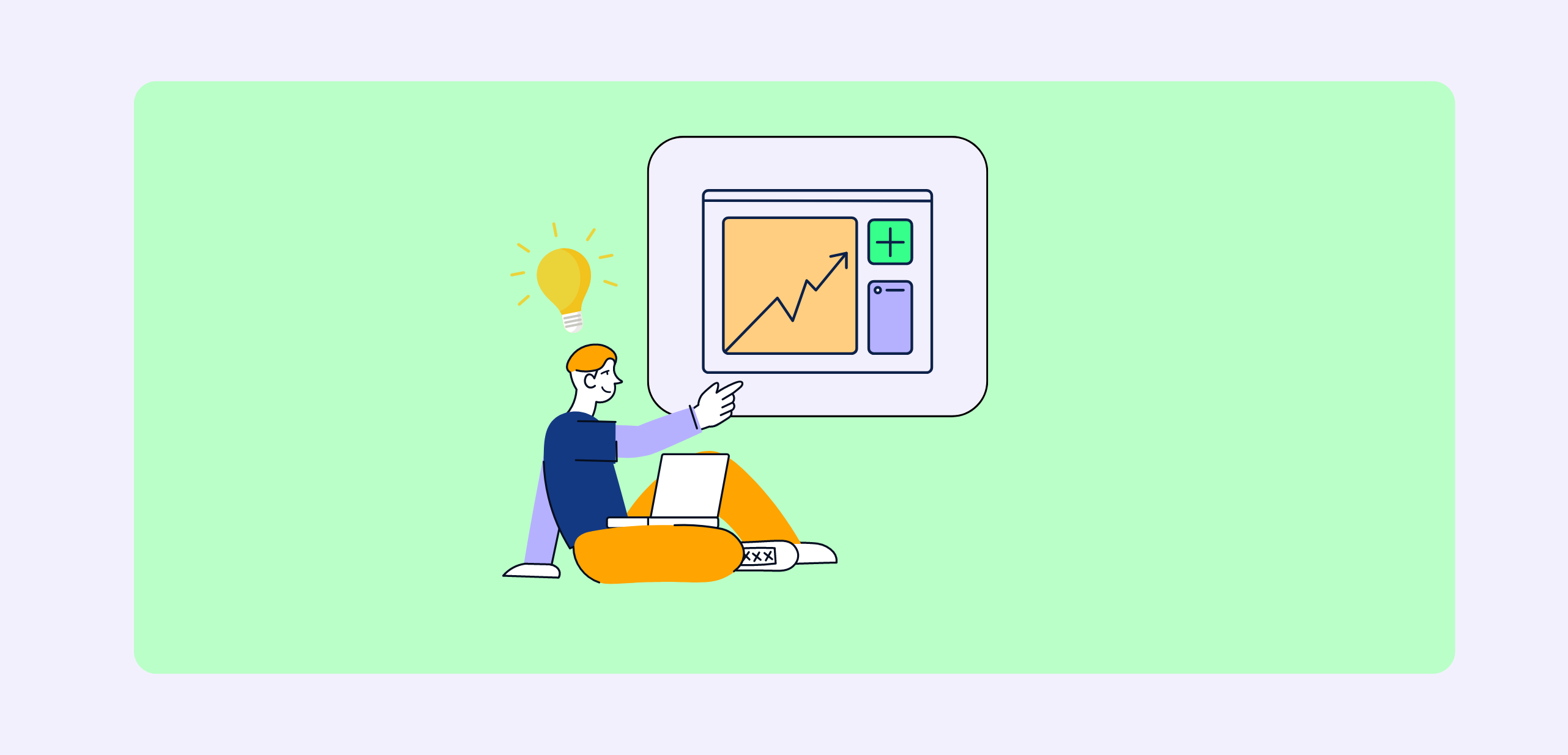
Case Interview 2025 – The Ultimate Guide for Success
What Is a Case Interview?
A case interview is part of the job interview process in which you as the candidate have to analyze and solve a problematic business scenario while interacting with the interviewer. The case study is often based on a problem the interviewer has worked on in real life. This part of the interview is intended to be more of a dialogue. You will need to be proactive and ask questions when attempting to close in on the correct conclusion. Oftentimes, the consultant will attempt to guide you in the correct direction by asking questions himself.
An example question might be: The CEO of Deutsche Bank has become increasingly concerned about their declining profitability over the last 36 months and has asked you to determine the factors causing the decline as well as recommend a strategy to reverse this trend.
During the entire application process, you will partake in up to six case interviews in two rounds or more. This is dependent on the position you are applying for. Most case interviews have the same underlying structure. An individual case interview may take up to an hour and usually consists of four parts:
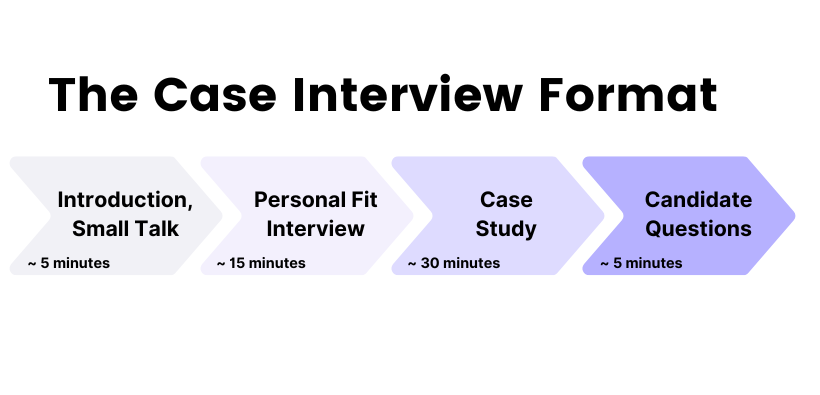
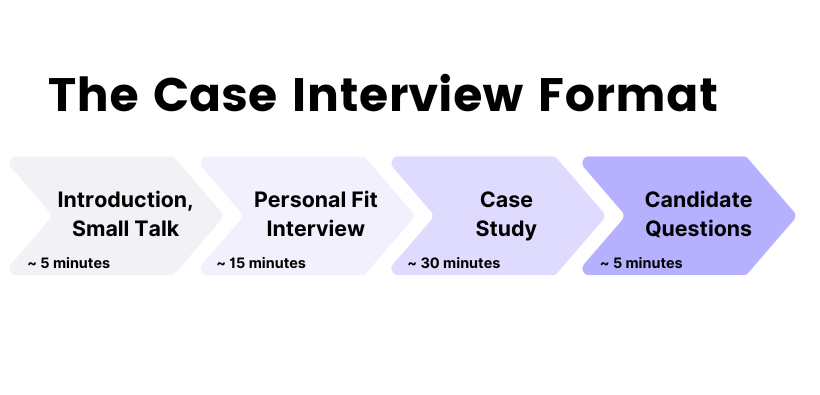
The case interview typically begins with a brief introduction and small talk (about 5 minutes), where the interviewer sets the tone and builds rapport. Next comes the personal fit interview (15 minutes), during which you will be asked about your background, motivations, and problem-solving approach to assess cultural and professional fit. The core of the interview is the case study (30 minutes). In this part you will be presented with a business problem to analyze and solve in a structured manner. Finally, the interview wraps up with questions that come from you as a candidate (5 minutes).
Who Uses Case Interviews and Why?
Case interviews have always been a part of management consulting interviews. Nowadays, also marketing, strategy, operations, or retail positions tend to use similar formats because they are a great tool to probe the quantitative and qualitative skills of an applicant. It allows interviewers to get a deeper insight into how you present yourself as a candidate and apply the limited amount of information given to you.
The reason for the prevalence of the case interview format in management consulting is that the topics and themes handled in most cases reflect conditions close to the reality of the day-to-day activities of a consultancy. It requires the applicant to ask the right questions, apply structured frameworks, and think outside the box. As a consultant, you will spend a lot of time client-facing, and so soft skills are just as important as hard skills to the interviewer. The case interview allows hiring companies to ask the question "Would I be happy to put this candidate in front of a client?".
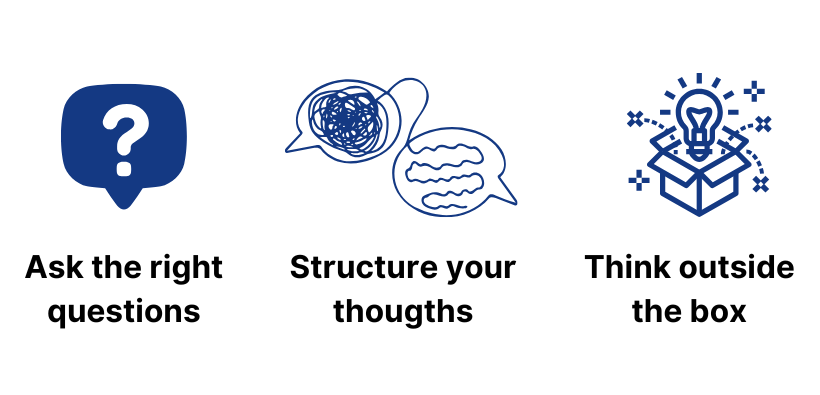
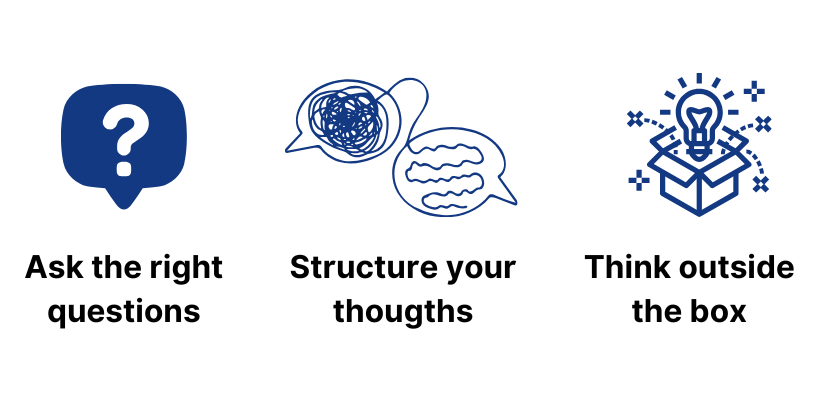
Due to the scenario set up in a case interview, it is also a test of general business acumen. Many consultant projects will be in industries where the consultants aren't experts, especially junior consultants. This is normal, but to be effective as a consultant business acumen is an important foundation for consultants to maintain effective strategy recommendations. Companies pay consultants for their minds rather than their industry expertise.
What Are the Skills Required in a Case Interview?
A case interview has no “correct” or “standard” answer. There are often many solutions to a single case and in the end, what counts is your train of thought and how you got to your solution. The interviewer will evaluate you across five main areas:
1) Problem-Solving Skills
The interviewer will analyze your ability to identify problems, isolate causes, and prioritize issues. During a case interview, you will be presented with a wide range of relevant and irrelevant data pieces. You must know how to use this data to make your recommendations and you have to prove that you are able to construct a logical argumentation without rushing to conclusions based on insufficient evidence.
2) Creativity and Business Sense Skills
As a consulting candidate, you should know the basic business concepts as well as show a certain amount of business sense and creativity. If the interviewer asks you to find innovative ideas to increase the profitability of a hotel chain, you will have to come up with a range of ideas that make business sense. You are not expected to have deep knowledge of the hospitality industry, but to be able to ask relevant and insightful questions on the aspects important for you to solve the client’s issue at hand.
3) Structure
Maintaining a structure means that you solve the question with a clear step-by-step approach that you communicate actively with your interviewer. A good structure is the most important part of a case interview, as it is the underlying base of your whole approach and argumentation. It is also the main reason why candidates fail their case interviews. A common mistake that candidates make is that they try to apply standardized frameworks to any case they are given. Instead, you should solve each case by creating a framework specifically tailored to its needs – as you would do as a consultant on the job.
👉 Practice your structure with our Structuring Drills.
4) Math Skills
As a consultant, part of your job is number-crunching and interpreting data. Therefore, it is important that you have a good feeling for numbers and have great mental math skills. You should be able to perform simple calculations in your sleep.
👉 You can practice your math skills with our Mental Math Tool.
5) Communication Skills
In times of digitalization, soft skills become more and more important for management consultants. On the job, you will be in contact with high-level CEOs, clients, partners, and colleagues. Strong communication is crucial for you to get your work done efficiently. Thus, your interviewer will pay close attention to the way you communicate and present yourself during your conversation. Always be professional, answer concisely, and communicate the key message first (see Pyramid Principle).
| First round | Second round | |
| Format | Identical | Identical |
| Seniority of the interviewer | Associates or Engagement Managers (up to 4 years of consulting experience) | Partners (more than 10 years of consulting experience) |
| Difficulty | Lower | Higher |
| Importance | Lower | Higher |
| First round | Second round | |
| Format | Identical | Identical |
| Seniority of the interviewer | Associates or Engagement Managers (up to 4 years of consulting experience) | Partners (more than 10 years of consulting experience) |
| Difficulty | Lower | Higher |
| Importance | Lower | Higher |
While the format of the first and second-round interviews stays the same, the seniority level of the interviewer differs. The person interviewing you in the first round is usually more junior, having up to four years of consulting experience (Associates or Engagement Managers). The second round is led by Partners who have more than ten years of experience and tend to drill you to understand how you cope with challenges. Therefore, second rounds are perceived as more difficult by candidates. Since partners have a stronger voice when discussing an applicant, your performance during the second round of case interviews carries also more weight.
👉 For more information on the different positions, check out the following thread in our Consulting-Q&A:

| Candidate-led | Interviewer-led | |
| Type of question(s) | Very general initial question or no question at all (just broad description of a situation) | Very specific questions throughout the interview |
| Data | Data and information are mostly provided at your request | A lot of data will be given throughout the case, e.g. tables or graphs |
| Company | Most consulting firms | Commonly used at McKinsey |
| Candidate-led | Interviewer-led | |
| Type of question(s) | Very general initial question or no question at all (just broad description of a situation) | Very specific questions throughout the interview |
| Data | Data and information are mostly provided at your request | A lot of data will be given throughout the case, e.g. tables or graphs |
| Company | Most consulting firms | Commonly used at McKinsey |
In candidate-led cases, the interviewer expects the candidate to lead him/her through the case. As a candidate, you can do so by asking relevant questions, and by developing and testing your hypotheses. Candidate-led cases are the most common types of cases. You will encounter them at the majority of the big consulting firms such as BCG, Bain, and occasionally at McKinsey.
Interviewer-led cases are most frequently used at McKinsey. As the title suggests, the interviewer’s guidance through the case interview is firmer.
👉 You can find more information on the two different interview styles in our Case Interview Basics: Interviewer-Led vs. Candidate-Led.
Real Case Interview Examples from Top Consulting Firms
At PrepLounge, we cooperate with top consulting firms that have provided real case studies for you to practice with. Find some examples below or filter for "real company case" in our case library.
Case Interview Frameworks
Case interview frameworks are the perfect tool to structure your thoughts during the interview. They help you break down a problem into its components so that you can systematically and methodically navigate through the case and the business problem. This approach will convince your interviewer that you can apply your skills from the case interview to the job as well.
The Best Frameworks for Solving Cases
A framework can help you solve a business problem in a case interview in a structured and organized manner. To determine which framework is most suitable for the given case, you should be familiar with the most common case types. Our coaches Guennael and Vlad explain their approaches:
What does a framework really need to accomplish? Essentially, three things:
First, it must be MECE (Mutually Exclusive, Collectively Exhaustive); second, it must help you systematically and methodically approach the case so that you not only find the best answer; third, it must convince your interlocutor that your success is repeatable and that you will solve this case and the next and the one after that.
When preparing for my BCG interview, I ultimately relied on just two framework concepts, which I then adapted to the respective case: First, a version of the profitability case (Profit = Revenue - Costs and Revenue = Price x Quantity); second, a basic version of: Product, Price, Customer, Competition, Company).
Are these two framework models optimal in every case? No, they are not. Did they serve their purpose? I used them in more than 10 practice cases with former BCG employees as well as in my 5 BCG cases... and I succeeded, that's for sure :) I would even argue that every case can be solved using one or both of these methods. Learn them, keep them in your pocket, and be ready to use them. If you find something better, great! But I'd prefer you start with an "okay" framework and focus on solving the problem, rather than spending the first 30 seconds of the case trying to find the "perfect" framework, failing, and feeling forced to think on the fly at the beginning of the solution process.
There is no universally applicable structure. You should have some patterns in mind for specific types of cases, but you should adjust them depending on the case:
- Objective
- Additional details of the case
- Industry
- Others
Below you'll find a list of the most common case types and some general recommendations for structuring:
- Market Sizing - Structuring from the supply or demand side. Structuring based on a formula or a issue tree.
- Profitability - Basic profitability framework. Consider different revenue streams and the product mix.
- Market Context (market entry, new product, acquisition, etc.). Always start with the big picture "market". Conclude with a specific strategy to achieve the case objective (e.g., "market entry strategy" - for market entry. "Exit strategy" for the PE case. "Go-to-market strategy" for a new product). Structure it as if you were defining the workflows for the real project.
- Operational Mathematical Problem (e.g., Should we increase the speed of an elevator or simply buy a second one? How should we reduce queues? Etc.) - Structuring as a process/value chain, with inputs, processes, and outputs.
- Cost Reduction - here are some recommendations for structuring:
Structuring:
- How do the costs break down and what are the largest costs?
- Benchmarking the largest costs to identify improvement potential
- Process improvements to achieve the benchmarks
- Costs and benefits of the proposed initiatives
The key concepts you must learn:
- Internal/external benchmarking
- Downtime
- Core processes (usually optimized) and supporting processes (usually trimmed)
- Mathematical structures (frequency of operations * time per operation)
- Other useful structures (e.g., People - Process - Technology)
- Evaluation - Pure financial structure with cash flows, growth rate, WACC / Hurdle Rate, etc.
- Synergies - Revenue synergies (price, quantity, mix) and cost synergies (value chain).
- Social/economic cases (e.g., How can the quality of life in the city be improved? How can museum revenue be increased?) - significant variability.
Practice 3-5 social cases before the interview. Additionally, there are several useful framework concepts that you can apply in the middle of the case to find the cause of a problem. For example:
- People - Processes - Technologies
- Capacity - Utilization - Production rate
- Product - Distribution - Marketing - Price
- Value-based pricing - competition-based pricing - cost-based pricing
- etc.
You will learn these frameworks while solving cases. It is useful to have a set of them in mind to quickly identify the root cause.
How to Develop Your Own Framework in 4 Steps
To be able to address specific questions in case interviews, it is important to develop your own frameworks. Our expert Benjamin has valuable tips on this.
- (Almost) Never use a standard framework from the books. In strategy consulting, the goal is to assist clients facing unique problems with a customized solution. It's unlikely that you can force your approach into a standard framework.
- Put yourself in your client's shoes and show empathy for the issues. This way, it becomes much easier for you to understand what the key issues are that you need to consider when formulating a recommendation, and you can ensure that you don't forget anything. I always ask myself, "What would I do if this were my company and my own problem? What do I need to know/understand to make a decision?"
- Ensure that every topic you want to address is relevant to the final recommendation. A simple check is to ask yourself, "If I spend time on this specific topic and get some answers to my questions (e.g., market size, competition, etc.), will this provide useful elements for the final recommendation given my client's issues?" If the answer is no, then you should skip this subtopic.
- Practice a lot! The above tips come from my own experience with building MECE structures, but keep in mind that it takes a lot of practice to achieve satisfactory performance here.
Case Interview Preparation: 9 Tips for Successful Case Preparation
1. Learn the Theory
By reading this article, you've already taken the first step to understanding what case interviews are all about. Well done! You can now take it a step further by learning the theory you need to solve the cases. In general, you should learn how to:
- Identify your case type (e.g., market sizing, market entry, profitability, growth)
- Structure your thoughts (e.g., issue tree, MECE, pyramid principle)
- Use business analysis tools (e.g., ABC analysis, break-even analysis, benchmarking)
- Define common business terms (e.g., NPV, CAGR, fixed and variable costs)
👉 In our Case Interview Basics, you'll find all the necessary fundamentals.
2. Develop Your Business Intuition Step by Step
Since you need to have a good business sense to successfully complete your case interview, you should invest some time beforehand to gradually build up your business intuition. The earlier you start, the easier it will become. Make it a habit to regularly read business publications and magazines. You can read new releases from McKinsey, Bain, and BCG, or find other sources that appeal to you. Try to acquire a basic understanding of economics, strategy, and industries, such as retail, airlines, telecommunications, banking, natural resources, and technology.
3. Update Your Math Skills
For all case interviews, you must calculate without a calculator. Therefore, refreshing your mental math skills should be a regular part of your daily preparation plan. Practice until you feel one hundred percent comfortable with the basic skills of addition, subtraction, division, multiplication, and growth rate calculations in your head.
👉 Use our mental math tool to train your performance. When confronted with a math problem in your case interview, this will significantly reduce the pressure.
Knowing shortcuts for a variety of calculations can simplify mathematical problems. For example, break down complex mathematical problems into several small operations:
97 x 53
= (100 - 3) x (50 + 3)
= 5000 + 300 - 150 - 9 = 5141
4. Practice Makes Perfect
Take a look at our extensive case library, which prepares you for all possible case types. Our case library includes cases that have been used in past case interviews. Solving cases on your own can give you a first sense of what to expect in the case interview. However, the only way to improve your skills to successfully pass the interview is to put yourself in a case interview situation. Find candidates to practice with and practice regularly. The more feedback you can get, the better. This will help you improve.
👉 PrepLounge offers the world's largest case interview community. Simply schedule or accept a practice interview with other candidates on our meeting board.
Here's how it works:
- Schedule: Once you and your case partner confirm the practice interview on the meeting board, the meeting is set and will be visible on your dashboard.
- Communication: We recommend contacting your case partner directly to discuss communication methods and case preferences during the interview.
- Interview: During the back-to-back meeting, you and your case partner take turns playing the roles of both interviewer and interviewee. Don't neglect the part of the session where you play the role of the interviewer. This allows you to identify important points and adjust your approach accordingly.
- Case: By default, two PrepLounge cases are randomly selected. However, you can exchange them and choose one of our over 200 cases or use your own case.
- Feedback: This is the most important part of your practice interview as it helps improve your case performance. Please provide your interview partner with constructive feedback, just as you would expect from them.
5. Seek Support from Coaches
To make your case interview preparation as effective as possible, we also recommend investing in coaching sessions with experienced top consultants. Our experience shows that this investment pays off, as it significantly increases your chances of receiving an offer for your dream job (by four times, to be exact). Our coaches know exactly what interviewers want and can work with you on every aspect of your case performance, whether it's structuring, personal suitability, confidence, or communication. Furthermore, they can provide you with valuable networking tips and help you get a referral.
We provide you with a transparent list of all case interview coaches, including their professional and educational background, top skills, individual approaches, ratings, and recommendation rates. This way, you can individually select the perfect expert for your coaching sessions. Additionally, you can benefit from Premium + Coaching, which includes a premium membership and a generous discount (compared to individual coaching sessions).
6. Learn and Track Your Progress
You can do as many cases as you want. If you don't learn from them, you won't improve your case performance. That's why you should do the following: At the end of each case you complete, whether on your own, with a case partner, or with an expert, write down in your own words what mistakes you made and what you learned. Repeat the case after a few days and apply what you've learned to ensure you're making progress. Tracking your progress motivates you and ensures you don't repeat the same mistakes.
7. Don't Forget the Personal Fit
No matter how well you master the case, if you don't personally fit into the company, you won't get the job offer. Ultimately, consulting is a "people's business" that involves teamwork and a lot of time with your colleagues. To master the part of the interview that focuses on personal suitability, it's important to understand what an interviewer is looking for in a candidate to decide if they fit into the company personally. Typically, the interviewer has three primary questions in mind.
Next, you should learn how to convey to your interviewer that you fit what they're looking for. Practice your answers to the personal fit with other candidates or experts:
- Why consulting?
- Why company X?
- Why should we hire you?
- Tell me about yourself!
- Give me an example of when you led a group to achieve a difficult goal!
- Find more frequently asked questions in stress question mode.
8. Train Confidence
The more you practice, the more confident you will feel. However, feeling confident isn't the same as appearing confident. Sometimes you can come across as insecure without realizing it. This can be due to small habits in your communication style. Therefore, ask your PrepLounge case partner or expert to consider your verbal and non-verbal communication and provide feedback on your confidence or insecurity. Focus on the following aspects during practice:
- The tone of your voice. A monotone voice or speaking too quickly gives an impression of insecurity and poor communication style. To avoid this, it's helpful to listen to podcasts of great speakers for 30-60 minutes a day. After a few days, you'll start speaking in a similar manner as you adopt their communication style.
- Smile. A smile can be a powerful way to show that you're enjoying the conversation and not afraid. You can also force a smile (naturally, not too much) if you get feedback that you appear too serious.
- Eye contact. You don't need to continuously stare into the interviewer's eyes during the conversation, but you shouldn't look away when they ask you something.
- Ability to break the ice. Confident people aren't afraid to engage in small talk with interviewers. Silence creates less connection and can be seen as a sign of lack of confidence.
- Posture. You should try to sit upright most of the time on your chair. Leaning too much towards your interviewer can be interpreted as lack of confidence.
9. Take Breaks
Overall, based on our experience with other case partners, you should prepare for an average of 50 hours over a period of up to 6 weeks and practice daily. This can be exhausting, and we know that many candidates struggle with motivation and concentration, especially after an intense case preparation period. This is usually because they forget to incorporate regular breaks into their preparation plan. Professional athletes, for example, always take time to rest and allow their muscles to regenerate. You should treat your brain muscles the same way. A good strategy is to develop an evening and morning routine that allows you to relax and increase your energy level for the preparation period during the day. Here are some examples of what you can do:
- 15-20 minutes of exercise in the evening or morning
- A cold shower in the morning
- Meditation or journal writing
- Define three important things for the next day and allocate time for all activities, prioritizing the most important ones first
- No social media for an hour after waking up and before going to bed
- Get enough sleep (at least 7 hours)
- Take breaks between each case or intensive case practice and do something completely different (e.g., workout, play video games)
How to Solve a Case Study in 10 Steps
Solving a case study might seem challenging at first, but with the right approach, it becomes much more manageable. The following 10 steps will help you break down problems, think logically, and confidently tackle any case interview.
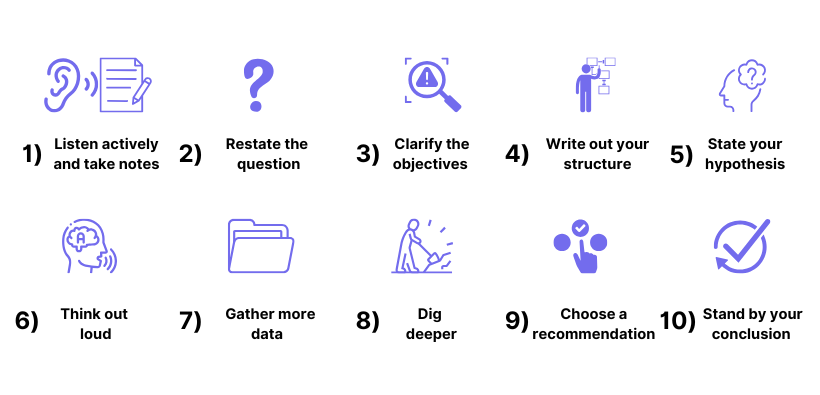
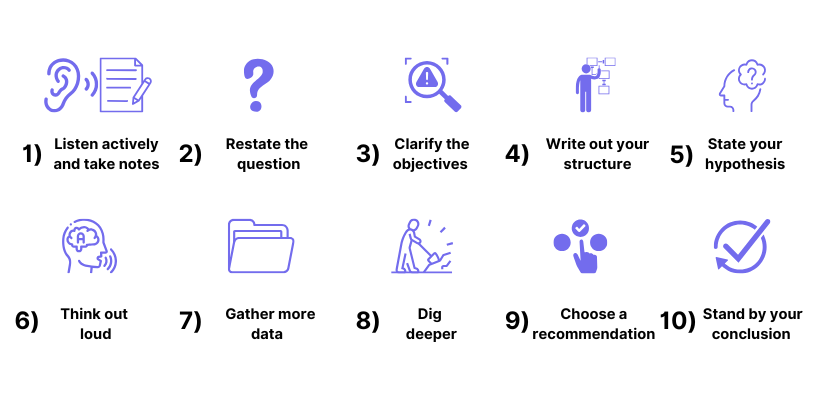
Step 1: Listen actively and take notes.
Write down every piece of information, especially numerical data.
Step 2: Restate the question.
Pause, paraphrase, and make sure you understand the problem statement by confirming with the interviewer.
Step 3: Clarify the objectives and identify the problem.
Ask specific questions and double-check on objectives. Make sure you completely understand the problem.
Step 4: Write out your structure.
Ask your interviewer for a minute to prepare your structure and organize your notes. Identify your case type and use an issue tree to customize your structure. The branches of your issue tree should be MECE.
Step 5: State your hypothesis.
Now that you have set up the issue tree, your task is to test each branch to see if it is the root cause of the problem. Where to begin? A hypothesis based on an educated guess helps here. (e.g. "Since you have mentioned that revenues are more or less flat, my hypothesis is that the problem is mostly driven by the cost side of the business. If it is okay with you, I will start by […]")
Step 6: Think out loud.
Sharing your thoughts allows the interviewer to interact. Refine or rebuild your hypothesis as you find out more.
Step 7: Gather more data in order to test your hypothesis.
Proactively ask for relevant data and always segment it (e.g. using the ABC analysis). Try to evaluate whether trends have been company-specific or industry-wide.
Step 8: Dig deeper while staying structured (MECE!) throughout the case.
Always refer to the structure you have set up at the beginning of the case, but be flexible as the case evolves. If you conclude that your hypothesis is false, eliminate that branch and go to the next one. Summarize findings when switching major branches. If your test confirms your hypothesis, go deeper into that branch, and drill down to the lower levels until you identify all proven root-causes.
Step 9: Choose a recommendation and use the Pyramid Principle to structure your conclusion.
Ask for a minute to gather your thoughts and then state your recommendation. You need to deliver a one minute, top-down, concise, structured, clear, and fact-based summary of your findings.
Step 10: Stand by your conclusion.
Your interviewer will likely challenge your recommendation (either to see if you can handle pressure or to assess if you really believe in what you are saying).
1. Focus on the task at hand.
Don’t think too much about the approach your interviewer is taking. It should not matter much if the conversation is interviewer- or candidate-led. If you go into your interview with a profound understanding of how to handle even a difficult case, the format of the interview should not be an issue. Keep a cool head and structure your thoughts.
2. Ask the right questions.
At the beginning of the case, your interviewer will present you with the situation of the client. Don’t rush into the analysis without developing a deep understanding of the problem first. Ask your interviewer questions to clarify the case. This is expected behavior that also takes place later with the client. Make sure you understand what the business model and your objective in the respective case are (regarding both money and the timeline). If there are any other possible limitations you are unsure about, ask your interviewer in a concise way. Asking unnecessary questions will raise doubts about your ability to work efficiently under pressure.
3. Buy time with repetitions.
A common trick consultants use is the repeating of facts or overall goals. By doing this, you are showing a fundamental comprehension of the case and are emitting an aura of control, gradually heading towards a solution. This technique can give you more time to think. Articulating the facts of the case can also be a source of clarity and allow you to form solutions more quickly.
4. Only form a hypothesis with sufficient information.
Do not state a hypothesis at the beginning, a stage in which you may still have incomplete information. Get a good sense of the case’s environment and ask sensible follow-up questions. Only then frame a structure and formulate a hypothesis.
5. Utilize data for your analysis.
Taking wild guesses is a death sentence for your case interview. Make sure your claims are backed up by the facts, and remain calm when presented with new information. Consultancies will closely observe how you make use of new data and incorporate it into your hypothesis.
6. Take clear notes.
Taking structured notes is a highly underrated skill when dealing with a case. Making sure your notes are coherent and clear will make your thoughts easy to navigate and ensure you do not lose your footing during the interview.
- Place your sheet horizontally to maximize your space, and jot down the case’s key question on the left side of the page. This way you will never lose sight of the main objective. The remaining portion will be dedicated to the issue tree, with your hypothesis included above the issue tree.
- Make sure that you highlight key pieces of information that add substance to your hypothesis.
- When it comes to calculations, use a separate page, but practice having it organized in case you need to go back through your assumptions or calculations.
- Try to limit the number of pages you use to a maximum of three sheets. Otherwise, you will stress yourself out while trying to find what you are looking for.
7. Structure is key.
The most important aspect of a case interview is having a good structure. You can structure your case by following these four steps:
- Craft an issue tree as the overall foundation for your structure. This is a customizable framework used to analyze the root causes of problems in a case. It helps you to break a complex problem down into its components.
- Make sure that your issue tree is MECE to avoid inefficient dependencies between branches that will slow down your analysis. MECE is a way of segmenting information into sub-elements that are mutually exclusive and collectively exhaustive.
- Prioritize and concentrate on high impact issues of your issue tree that will create value for your client. Always make sure you explain the reasons behind your choices to the interviewer.
- Use the Pyramid Principle to structure your conclusion, a three-step structure to present your synthesis in an effective and convincing manner. First, state the recommendation (What?). Second, provide three reasons supported by data (Why?). Third, provide information on how to implement the recommendation (How?).
👉 To practice your structure, you can use our Structuring Drills.
8. Don't force-fit frameworks.
Standard frameworks can be a source of inspiration, but should never be force-fitted to a case. They are very stiff and do not allow room for customization. If you use pre-defined frameworks, you run the risk of missing important elements of the specific problem you are trying to solve. A consultant would not just force-fit frameworks to their specific client’s problem, so you should not do this in your case interview, either. Each case is unique and requires an individually customized framework that is MECE as well as adapted to the problem you are trying to solve, the company, and the industry.
9. Don’t panic if you get stuck.
If you ever get stuck, don’t freak out – it happens. What counts is how you deal with the situation. Here is what you can do:
- Take a deep breath or a sip of water if you have a glass of water nearby.
- Take a moment to grasp the big picture, to recap what you have learned so far and what you still need to find out to address the main question at hand.
- Outline how these sub-questions can be answered, and what kind of data or information you will need to do that.
- Double-check whether data or information provided by the interviewer at an earlier stage is now getting new relevance.
- Think out loud and take the interviewer along with your thinking process. If you are puzzled by some obvious contradiction, actively discuss this with your interviewer. Oftentimes, an interviewer will wait for you to explicitly verbalize your confusion before gently guiding you.
10. Sometimes there is no clear answer.
Oftentimes, a case interview has no “correct” or “standard” answer. The case may encompass you exploring the issues and walking down several paths. There are often many solutions to a single case that may differ from the interviewer’s expectations. In the end, what counts is your train of thought and how you got to your solution. You are not expected to know everything about business, but demonstrate a logical judgment and a good approach to solve problems.
Nevertheless, you should always give a clear recommendation at the end of the interview, when the interviewer will ask for your conclusion. The trick is to use supporting arguments based on what you have learned during the analysis, to point out limitations, and to also highlight additional areas to explore to confirm that your current understanding is the right one.
11. Engage the interviewer.
The interview should be a dialogue, so make sure to engage the interviewer and demonstrate not only your business judgment, but also your communication and people skills. This gives the first insight into how you might interact with future clients and colleagues. How can you do that?
- Explain. Share your thought process with the interviewer, and always let them know what your next steps are.
- Listen. During your case interview, the interviewer will usually give you hints and steer you in a direction. Notice that! If they ask a specific question, e.g. “Name three points about…”, answering in two or five points will mean that you didn’t pay attention.
- Ask questions. Create a discussion, initiate small talk, and use your chance to make a positive connection with the interviewer, especially at the end of every interview when you get to ask final questions. Find a point in common and try to stand out.
👉 In the following Q&A thread, you can find a list of the best questions to ask at the end of an interview:

12. Be confident.
You don’t necessarily need to be extroverted to be a top management consultant, but you need to be confident. Consulting is a people job as much as it is an analytical job. It is important for the client to feel that you know what you are doing. Thus, this is something the interviewer will take into consideration. Here are five things you can do during the interview to come across as more confident:
- Try to enjoy the interview by focusing on the challenge, the satisfaction it brings you when you solve the case, and the joy of sharing your life experiences with someone else. If you have fun, chances are high that the interviewer has fun, as well.
- Find your own style and don’t try to pretend to be someone that you are not. It is fine if you are not the most outgoing person. Just be genuine!
- Sit up straight, but don’t be too stiff. Push your back against the back of the seat and don’t just sit on the edge of the chair.
- Make eye contact, but don’t stare, either.
- Speak in a clear, calm, and unrushed manner. Don't mumble or whisper, but equally don't shout. Think before you speak!
13. When in doubt, reschedule.
If you’re not feeling confident about your chances, don’t hesitate to reschedule. If you take this course of action, take a few things into consideration. Make sure to suggest an alternative day and avoid rescheduling multiple times at all costs. The consultancy will be grateful for you to suggest an immediate alternative. Try to be transparent as to why you are rescheduling without going too deeply into details. However, rescheduling should only be used as a last resort.
To become the best, you must learn from the best. That is exactly what PrepLounge can offer you. The vast PrepLounge community makes it easy to find case partners with the same ambitions and goals as you. Whether you are looking for a professional case coach or other aspiring consultants, you will have no problem finding case partners in the build-up to your interview. Our PrepLounge coaches – from Bain to McKinsey – are uniquely qualified to provide you with insights into the mastery of a case interview.
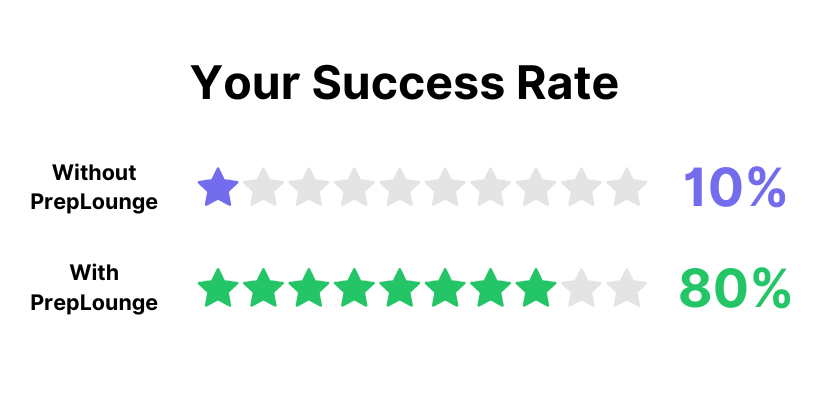
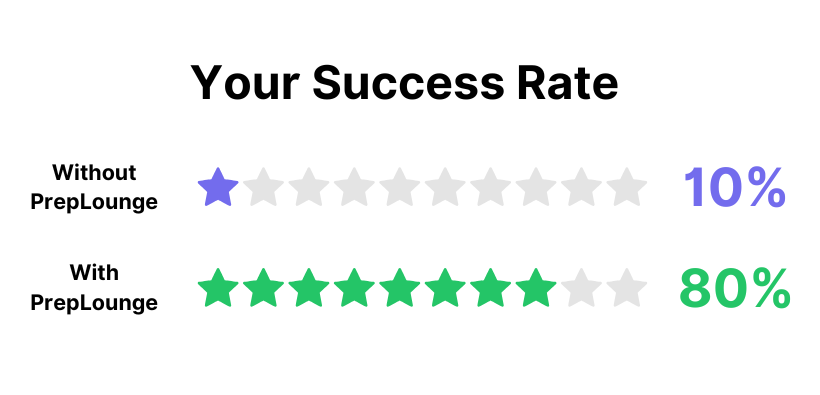
Apart from case partners from every imaginable background, PrepLounge provides a colossal collection of online resources to give you the best preparation leading up to your case interview. We will provide you with questions and answers to the most important consulting case types and share in-depth knowledge for the best possible case interview preparation. You will be able to find case partners to practice online and always be on top of the latest insights and news regarding consulting jobs and top consulting firms.
Join our case interview community today and get one step closer to landing your dream job in consulting!
Real Practice Cases to Start Your Case Interview Prep
Get started with your case interview preparation now with our practice cases!
Continue to Learn
